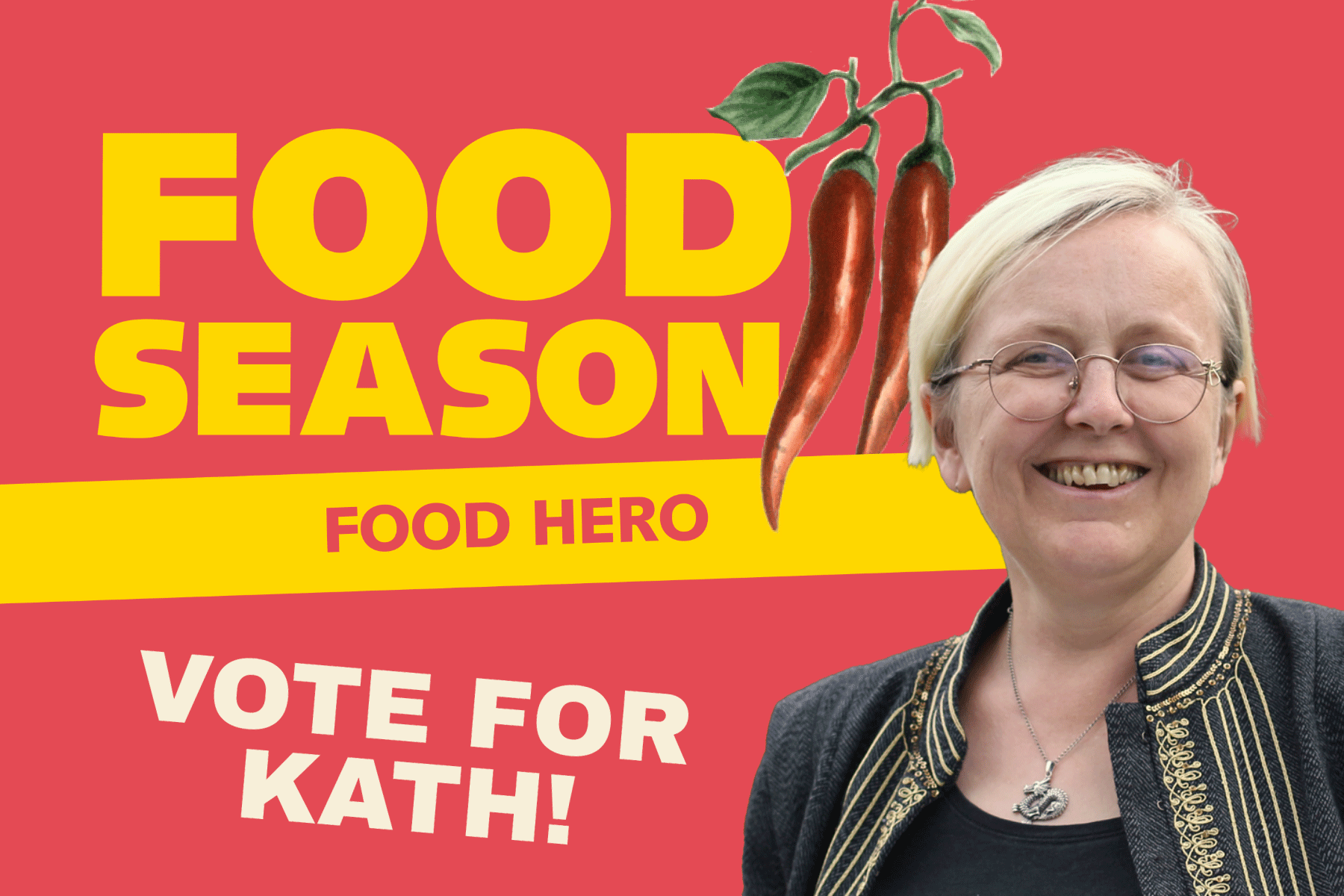 Kim Smith. Photo: Sean McGowan
Kim Smith. Photo: Sean McGowan
Roots To Work: The Good Food Educator
Ellie Costigan chats with Kim Smith about how she began her career in food and what it’s like working for sensory food education initiative - TastEd.
Kim Smith has had a smorgasbord of a career in food: from managing farmers’ markets and developing products for supermarkets, to creating a primary school food education programme at her children’s school in south-east London. She’s now a Trustee of TastEd – the sensory food education initiative founded by food writer and historian Bee Wilson and Jason O’Rourke.
She tells us all about her journey, the importance of children’s food education and what needs to be done to get food education on the mainstream agenda.
What drew you to the food industry?
To be honest, Home Economics at school was my best subject. When the careers advisor warned me off a career as a dancer, she suggested I consider the food industry. So I dutifully went off to study Food and Consumer Studies at Sheffield Hallam University, where I studied everything to do with food – cooking, sensory evaluation, processing, sustainability, consumer behaviour, food science and more. I have been in the industry ever since. But what keeps me in the industry more than 20 years on is my love of eating and learning about food!
Where did your career in the food industry start?
My degree included a placement year where I worked as a product developer, scaling up ready meals from the kitchen to the factory for Marks and Spencer. The first 10 years after university remained in product development where I experienced the entire supply chain, from third party supplier to retailer.
How did you end up at TastEd and what’s it all about?
Running a primary school food education programme at Prendergast Primary, I felt like a lone voice with few teachers interested in primary food education. So I brought together a network of like-minded people. I just happened to email TastEd, as its aims were the same as my own… to give children the opportunity to discover the joy of food. When Bee replied, we connected over much of our shared experiences working in primary school food education and she asked me to be a trustee.
TastEd is based on the Sapere method, and is a programme of lessons designed to walk teachers step-by-step through an exploration of fruit and veg. It gives children the opportunity to explore fruit and vegetables with their senses and imagination in a fun, empowering lesson. The essence of TastEd is that “no one has to like, and no one has to try”. Once you take the pressure to eat a vegetable away, children's innate curiosity takes over and they cannot resist a nibble.
Why is children’s food education so important?
I believe children have the right to learn about food, as knowing how to eat well is an essential life skill. Learning to eat well requires a comprehensive range of skills and knowledge that needs to be taught and modelled throughout childhood. However, life today doesn’t provide children with this opportunity, at home or at school. I believe this is a major issue given food is one of the biggest causes of current health and environmental issues faced globally. We need to equip the future population with the skills to eat well for personal and planetary health.
What more could be done to get children cooking and learning about food?
My time working with lots of teachers and connecting with food educators has shown me that much food education is happening in primary schools. However the current approach is fragmented and sporadic, ranging from healthy eating, cooking, growing and more. But it all needs to be joined up to ensure a greater impact. Two things need to happen:
First we need to stop talking about cooking or healthy eating and start talking about ‘food Literacy’. This relatively new term encompasses all the skills and knowledge required to eat a sustainable diet and brings together cooking, nutrition, growing, sustainability, positive relationships to food and more.
Second, we need national policy. The current curriculum lacks any real progression in food education and results in children leaving school without the skills to feed themselves well. For too long the responsibility has fallen to the third sector. I believe that the population needs to be educated about food coherently, and is just one of the many policies that need to be implemented in order to address the global issues of health and sustainability.
What advice would you give to someone looking to get into food education?
Don’t be afraid to get your hands dirty. Get involved with a local organisation or school who is running a food education programme. Or start something. That’s what I did. I was shocked at how little food education takes place in primary schools, so I was happy to share my skills and knowledge and the teachers love having a specialist in class.
What are the most challenging and most exciting parts of your job?
The most exciting part of being a Trustee at TastEd is running sessions with the children. I have been running groups to introduce the scheme to my children’s school and they have been hands down the best food sessions I have run in the last four years of teaching food classes. The children are so utterly engaged with the sessions and they all have lots to contribute, with the most imaginative observations. Food is such a universal subject.
The most challenging thing is not being able to go to every class in every school and just run TastEd with a teacher to show them the magic. The education system is huge, fragmented and packed full with competing priorities. But TastEd can deliver so much more than just food education: it helps children with special needs to develop social skills, helps develop language, teach science, maths and more.
What’s the best thing a child’s ever said during a TastEd class?
I ran a session with year one, linking to their science topic of ‘senses’. We were exploring tomatoes and it turns out they are quite polarising to five and six year olds. When I revealed what we were tasting there was lots of “I hate tomatoes!” But during the session, so many of the children who had expressed such objections were soon bursting to tell me what they thought of the yellow, cherry, green and beef tomatoes I had taken in. “They taste like watery jelly jam” or “the stalk of the tomato looks like a starfish” and “it reminds me of my granny’s garden” and everyone tried the tomatoes of their own free will. Curiosity gets them every time!
Read others from our Roots to Work series, such as Kerry Rankine: The Better Food Trader
London Food Link: London Food Link brings together community food enterprises and projects that are working to make good food accessible to everyone in London to help create a healthy, sustainable and ethical food system for all.
Sustain
The Green House
244-254 Cambridge Heath Road
London E2 9DA
020 3559 6777
sustain@sustainweb.org
Sustain advocates food and agriculture policies and practices that enhance the health and welfare of people and animals, improve the working and living environment, promote equity and enrich society and culture.
© Sustain 2025
Registered charity (no. 1018643)
Data privacy & cookies
Icons by Icons8
